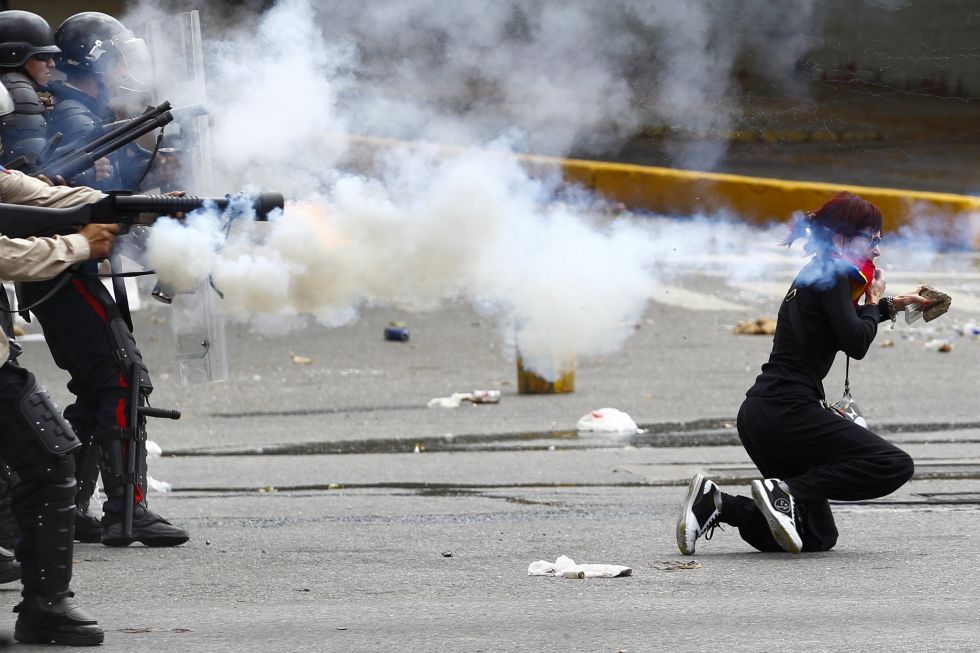The first five months of 2019 have been characterized by the deepening electric crisis in the Zulian region, specially during national blackouts that occurred during the months of March and April. Since mid-April, an official plan regarding electric charge administration has been applied, which enables the use of provisional electricity in the region for up to 12 hours. Nonetheless, the execution of this plan has proven to be unreliable due to the varying supplying hours and the constant voltage fluctuations.
This situation has proven that the lack of electricity in Zulia is not a conjectural problem, but rather a structural one. The citizens of the most populated region in Venezuela, known for temperatures that go above 45 degrees celsius, do not receive any aid from the State nor the support programs, except for the electricity generators donated to some of the many communities in the region.
The various blackouts have yet to end for the Zulian population. In May, various incidents regarding the public electric service in Maracaibo were reported, while Corpoelec and the authorities turned a blind eye to such issues. Around 1.7 to 4.3 million lack electricity for an uninterrupted amount of hours. To put this in prospective, considering the population data provided by the National Institute of Statics, around 5 to 13 percent of the Venezuelan population is affected directly and simultaneously by these blackouts.
The Commission of Human Rights For the Zulian State (CODHEZ) has reiterated the negative impact this situation has on various aspects of Zulian society and life.
Misinformation
Misinformation is a normal circumstance in the region because, due to the lack of electricity, radio emissions and television broadcasts fail. This is especially aggravated by the disappearance of printed media in the state.
It is necessary to acknowledge that, during the national blackouts, there was a massive lack of official information, as well as any recommendations from knowledgeable officials on how to deal with the crisis, except for repeated announcements telling the citizens to remain calm.
Telecommunication and electronic payments
The failures of the electric services have affected telecommunications, and therefore, the possibility of informing yourself through the internet and communicating with others. This situation leads to complications regarding electronic transactions with debit or credit cards through online transfers or phone payment, cutting off the access to goods such as food or medicine.
Lack of Gasoline
Since the start of the blackouts, gasoline shortages have progressively worsened. In current day circumstances, it has become common to witness large cues of cars waiting in gas stations for fuel. At the beginning of April, lines had a waiting time of up to three hours. Starting June, citizens will now face cues of up to 24 hours.
Effect on Businesses and Commerce
The power outages have also caused the closure of 800 local Zulian businesses due to both the pillaging of goods by the desperate inhabitants of the state and the lack of backup electric generators used to power the stores during the blackouts.
Lack of Access to Clean Water
Due to the constant blackouts, the lack of access to clean water in the region has worsened as well. Before March, various communities in Maracaibo reported failures regarding distribution of clean water, illustrating that they could only use water from the pipeline every four to eight days for about eight to twelve hours each day. Since the first national power outage, these times have prolonged themselves to 15, 20, 30, or even 40 days without water, pushing the citizens to search for water in the streets, lakes, and has caused an increase in the use of water tanks and private water delivery services.
Education
Education is one of the fundamental rights that is being currently affected by this situation. During the blackouts Nicolas Maduro’s regime made a variety of changes to school calendars and schedules, causing the reduction of class time for students, which thus reduced the quality of education being received.
Students from both private and public schools now have a four hour schedule and attend school only four days a week, when they previously had a regular eight hour schedule and attended five days a week. It must also be taken into consideration that many of these schools are located in sectors constantly affected by the regular power outages taking place.
Healthcare
The public healthcare system has also been affected in a similar manner. This has prejudiced patients, specifically those suffering from renal insufficiency. The president of the Zulian School of Nurses, Halia Salazar, filed a report stating that 15 deaths were reported in Zulian medical centers due to the lack of electricity. Despite that, none of these casualties have been recognized nor reported by the government.
–
In the midst of this situation, we remind the State, both constitutional and international, its duty to preserve the fundamental human rights and, in this case, guarantee a working, efficient electrical service for its citizens.
The International Covenant on Economic, Social and Cultural Rights (ICESCR), which the Venezuelan regime is obligated to follow, states in article 11, “…the right of everyone to an adequate standard of living for himself and his family, including adequate food, clothing and housing, and to the continuous improvement of living conditions.” Hence, the state must “take appropriate steps to ensure the realization of this right, recognizing to this effect the essential importance of international co-operation based on free consent.”
Due to this circumstances, it is imperative that we find a sustainable solution for the electrical problem the Zulian region is currently facing and thus provide better living conditions for all Zulian citizens.




